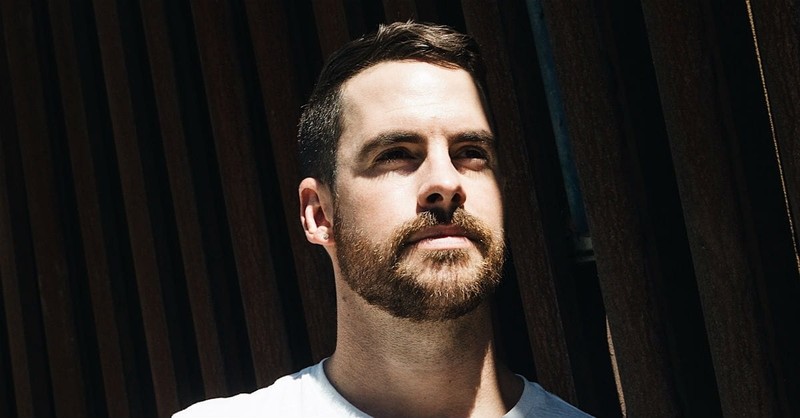What Is Salvation? (Also: Why It's Needed and How to Get It)

As children we learn words by associating them with other words. I didn’t go to church much as a child, so many of the churchy words were unfamiliar to me. One in particular that always caused me confusion was the word “salvation.” It wasn’t a word that I had much to connect with. My dad worked at a salvage yard. That sounded close enough. So I figured salvation had to do with claiming something that was broken and messed up and then somehow reselling it for a bit of a profit. Turns out I was pretty close
What Does Salvation Mean
The simplest definition of salvation is to be delivered (or rescued) from peril. The word took a bit more of a shape when I figured out it was connected with the preacher telling us we needed to “get saved.” The most common meaning of salvation is to be saved by God from the consequences of our sin. But the Bible speaks of our salvation in a bit fuller terms than simply being rescued from hell.
When thinking about salvation it’s helpful to think about what we are saved from, what we are saved to, who we are saved by. It’s also helpful to think about our salvation as a past, present, and future happening.
Photo Credit: Unsplash/Andre Hunter

What Are We Saved From?
The very nature of the word salvation means there is some sort of threatening or deadly condition which we must be rescued from. What, according to the Bible, are we saved from?
Listening to some of our popular songs, sayings, and even preachers, one might think the primary thing we are saved from these days is purposelessness. Others speak of salvation from drug addiction or shattered relationships. Yet, others speak of difficult circumstances in which we are facing. While the Bible certainly speaks of God’s redemption from futility, purposelessness, and suffering, this is not the primary problem which humanity faces.
In the Old Testament (OT), the primary Hebrew word which is translated as “save” or “salvation” often refers to deliverance in concrete real-life situations. In 2 Kings 19:19 Hezekiah prays for the Lord to save them from the Assyrians. Though there are massive spiritual implications to this, the deliverance he longs for is primarily in the present. Likewise in Psalm 54:1 when David asks for God to save him he is thinking foremost about being delivered from the hand of Saul who is tracking him down. The Old Testament establishes God as the Deliverer and Savior.
While the primary New Testament (NT) word for salvation on occasion points to deliverance from a physical threat the dominant meaning is deliverance from the consequences of sin and the clutches of death and Satan. The major theme of deliverance in the NT is deliverance from God’s wrath. In 1 Thessalonians 1:10 and Romans 5:9 speak of our being delivered from the wrath to come. John MacArthur summarizes well:
"The real problem is sin and guilt. That's the issue. God sent Jesus Christ to rescue us from the consequence of our sin, and everybody falls into the category of sinner. It doesn't matter whether you're among the haves or the have-nots, whether you have great expectations or none at all, whether you're consumed by your passions or exhibit a degree of self-control and discipline-you are still a sinner. You have broken the law of God and He's angry about it. Unless something happens to change your condition, you're on your way to eternal hell. You need to be rescued from the consequences of your sin. Those are the principal issues the gospel solves."
We see, then, that salvation speaks of receiving deliverance from our greatest problem; namely, the many consequences of our sin against a holy God. So how does this salvation come about?
Photo Credit: Pexels

By Whom Are We Saved?
In Acts 16:30 a Philippian jailer asks a very important question. “Sirs, what must I do to be saved?” The apostles did not hesitate in pointing to Jesus Christ as the only means by which men will be saved. Those in the Old Testament looked to God alone as their Savior. This is picked up in the NT when Jesus Christ is referred to as our Lord and Savior.
God is the one who enacts salvation. The Scriptures are clear that the way of unbelief is to trust in self or in other things for salvation. Psalm 20 shows that the way of belief is to not trust in chariots or horses but to trust in the name of the Lord. We are the ones who have gotten ourselves into the mess; therefore God alone is able to save. 1 Timothy 1:15 is clear that Jesus came into the world to save sinners. This means every sinner, if he/she is to be saved will be saved through Christ.
Photo Credit: Unsplash/Jeslyn Chanchaleune

What Are We Saved To?
This is where the image of a salvage yard is somewhat helpful. When a salvage yard reclaims a wrecked car, they take possession of it, change it substantially, and repurpose it. Though far less utilitarian, this is true of believers. Some people think of salvation as God cleaning our slates, offering forgiveness, and giving us a second chance. It is so much more than this. Salvation is not only being saved from something it is also being saved to someone. We are saved from sin and brought to God.
The Scriptures speak of the many benefits of salvation. John 8:36 helps us see that we have been set free. We are rescued from bondage and brought into freedom. Romans 5:1 tells us that we were saved from wrath and brought into peace with God. These are only a few examples. The Bible consistently shows that where sin once brought havoc and wreckage, the gospel brings life. But of all the benefits of the gospel, the greatest one is that it brings us to God Himself. I appreciate these words of John Piper:
"Indeed there are ten thousand gifts that flow from the love of God. The gospel of Christ proclaims the news that he has purchased by his death ten thousand blessings for his bride. But none of these gifts will lead to final joy if they have not first led to God. And not one gospel blessing will be enjoyed by anyone for whom the gospel’s greatest gift was not the Lord himself." (Piper, God is the Gospel, 12)
We are saved for a relationship. God has overcome our greatest problems so that we could be brought into a relationship with Him. This is our greatest good. But how does this become ours? Is everyone saved because the work Christ has accomplished?
Photo Credit: Unsplash/Wang Xi

How Do We Receive Salvation?
When I bought an engagement ring for my wife, it did not make us engaged. I still had to pop the question and she still had to receive my gift. In the same way Christ has done what is necessary for us to be saved, but that gift is not appropriated apart from faith. This is what the Bible teaches in Ephesians 2. We are dead in our trespasses and sin, and God makes us alive. When our eyes are opened to the beauty of the gospel and the accomplishment of Christ our only fitting response is to respond in repentance and belief.
Repentance and belief are really two sides of the same coin. Repentance means that we are changing our mind about God and about ourselves. We are laying down our own foolish efforts to save ourselves. We are turning away from self-sufficiency. At the same time we are turning towards Christ. We trust that He alone is the one who can save us. We are entrusting ourselves to him.
This is why the Bible says it is by grace through faith (Ephesians 2:8). Faith is simply that which links us to Christ. It’s that which reaches out and grabs ahold of the work of Christ. And, as it has often been said, a weak faith is able to lay ahold of a strong Christ. The most important aspect of our repentance and faith is not its own veracity. The most important aspect of our repentance and faith is its object. When we place our faith and trust in Christ the Bible says we are saved. “Everyone who calls on the name of the Lord will be saved,” Joel 2:32 (also Acts 2:21 and Romans 10:13).
Photo Credit: Unsplash/Eduardo Dutra

Past, Present, Future
The last thing to note about salvation is that the Bible speaks of it in past, present, and future terms. Christ has died in history on our behalf. So there is a sense in which we can say with Paul, “He has saved us,” (2 Timothy 1:9). There is another sense in which we are being saved. Salvation has an impact on the present. We are still in the process of being saved. This is why 1 Corinthians 1:18 speaks of those who are “being saved.” We also see a future component to our salvation. Romans 5:9 says, “we shall be saved.”
This is not to say that there is no security in salvation. The common thread in all of these tenses of salvation is union with Christ. It is here that our hope for salvation rests. Either we are in union with Christ or we are not. Whenever I think about standing before the Lord of the Universe I’m reminded of these poignant words by Mark Dever:
"A Christian, therefore, knows that if he were to die tonight and stand before God, and if God were to say, 'Why should I let you into my presence?' the Christian would say, 'You shouldn't let me in. I have sinned and owe you a debt that I cannot pay back.' But he wouldn't stop there. He would continue, 'Yet, because of your great promises and mercy, I depend on the blood of Jesus Christ shed as a substitute for me, paying my moral debt, satisfying your holy and righteous requirements, and removing your wrath against sin!'"
This article is part of our larger resource library of terms important to the Christian faith. From heaven and hell, to communion and baptism, we want to provide easy to read and understand articles that answer your questions about theological terms and their meaning.
What is Blasphemy and Why is it So Deadly?
What is Heresy?
The Fruit of the Spirit - What Are They?
10 Things to Know About Speaking in Tongues
What is the Tithe?
What is the Sabbath and is it Still Important?
Heaven - What is it Like, Where is it?
Hell - 10 Things You Should Know
Baptism - What Does it Mean and Why is it Important?
Communion - 10 Important Things to Remember
The Trinity - Father, Son, Holy Spirit Explained
Armor of God - What is it and How to Use it
What is Agape Love?
What is Salvation?
The Holy Spirit
What is Sin?

 Bernd Heinrich in Vermont.Credit...Paul O. Boisvert for The New York Times
Bernd Heinrich in Vermont.Credit...Paul O. Boisvert for The New York Times






